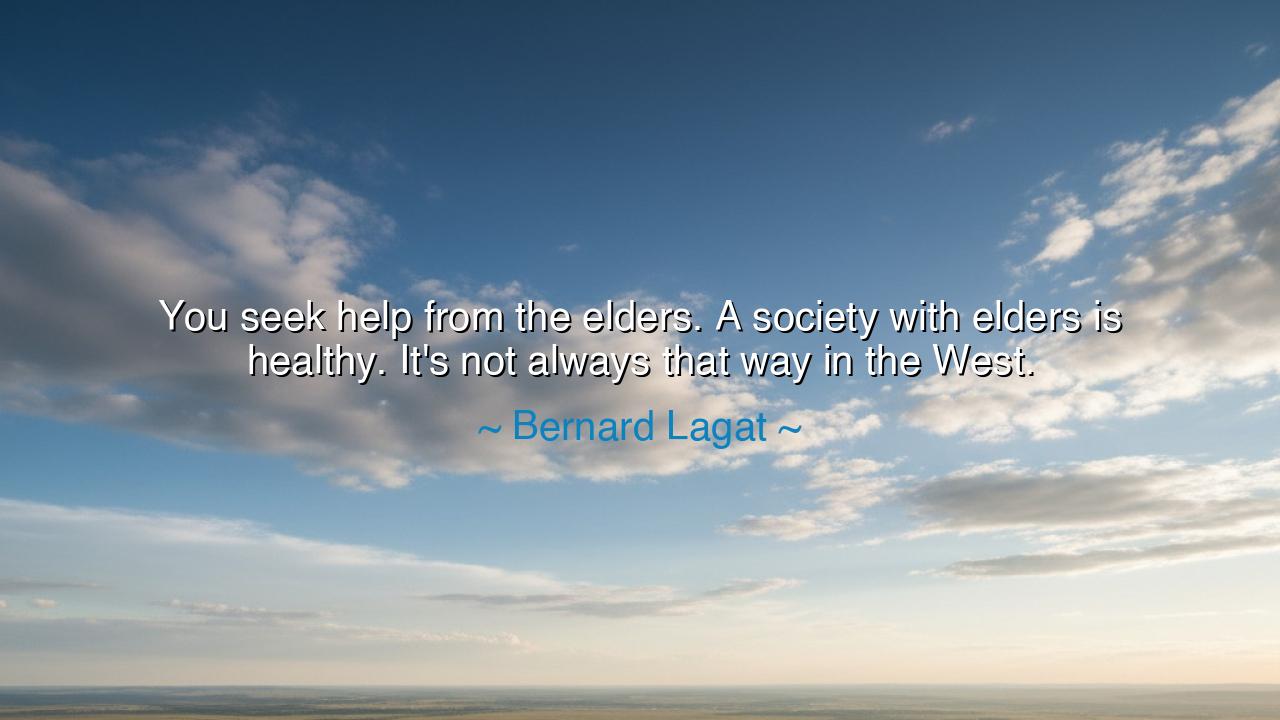
You seek help from the elders. A society with elders is healthy.
You seek help from the elders. A society with elders is healthy. It's not always that way in the West.






Hear, then, the words of Bernard Lagat, the runner whose feet carried him across continents, but whose wisdom runs deeper still: “You seek help from the elders. A society with elders is healthy. It’s not always that way in the West.” These words are more than observation; they are reminder and rebuke. They call us to remember that a people without reverence for its elders is like a tree that scorns its roots, standing tall for a time, but destined to wither when the winds of trial come.
For the elders are not merely the aged. They are the keepers of memory, the living libraries of a people, the witnesses of triumph and error. To cast them aside is to sever the chain that binds past to present, wisdom to action, story to survival. In many lands, the young do not walk alone but walk guided by the counsel of those who have weathered many storms. This is health, for just as the river needs its banks to flow true, so too does a society need its elders to guide its course.
Consider the people of the Maasai, among whom elders are pillars of authority and guidance. Their words shape law, their counsel shapes harmony, and disputes are settled not with rashness, but with patient wisdom. In such a society, the hot blood of youth is cooled by the calm voice of age. Contrast this with much of the West, where the old are often placed in corners, hidden away in homes, spoken of as burdens rather than treasures. Here, the chain is broken, and the young are left to stumble in darkness, inventing lessons their ancestors already learned at great cost.
History teaches us again. In ancient China, filial piety was enshrined as the greatest of virtues. The elders were honored as bridges to Heaven itself, and their counsel was seen as the seed of order and prosperity. Dynasties flourished when this respect was strong, and faltered when arrogance replaced humility. Meanwhile, in the decline of Rome, as corruption spread, respect for the old ways diminished. The wisdom of the Senate became ignored, and the empire itself crumbled, for what nation can endure when its foundation—its memory—has been despised?
The wisdom of Lagat’s words lies not only in praise, but in warning. A society that discards its elders grows rich in machines and knowledge, but poor in meaning. It builds towers of stone but forgets why it builds. It chases speed but loses direction. The young may grow clever, but without the compass of those who came before, cleverness becomes folly. The sickness of the West is not age itself, but the forgetting of age’s value.
The lesson, then, is simple yet profound: do not neglect those who came before you. Sit with your elders. Ask them for their stories. Honor their struggles, and learn from their mistakes. The wisdom of decades cannot be bought in schools or found in books—it is carried in the eyes of those who have lived long and loved much, who have borne sorrow and tasted joy. To reject them is to cast away treasures more precious than gold.
Therefore, O listener, let your actions be these: when you see an elder, see not weakness but strength concealed in frailty. Invite their words into your decisions. Let your children know their grandparents’ stories. Create a place where the old are not hidden but honored, not silenced but heard. For only in such a world shall a society remain truly healthy, standing not only on the vigor of its youth, but on the wisdom of its age.






AAdministratorAdministrator
Welcome, honored guests. Please leave a comment, we will respond soon